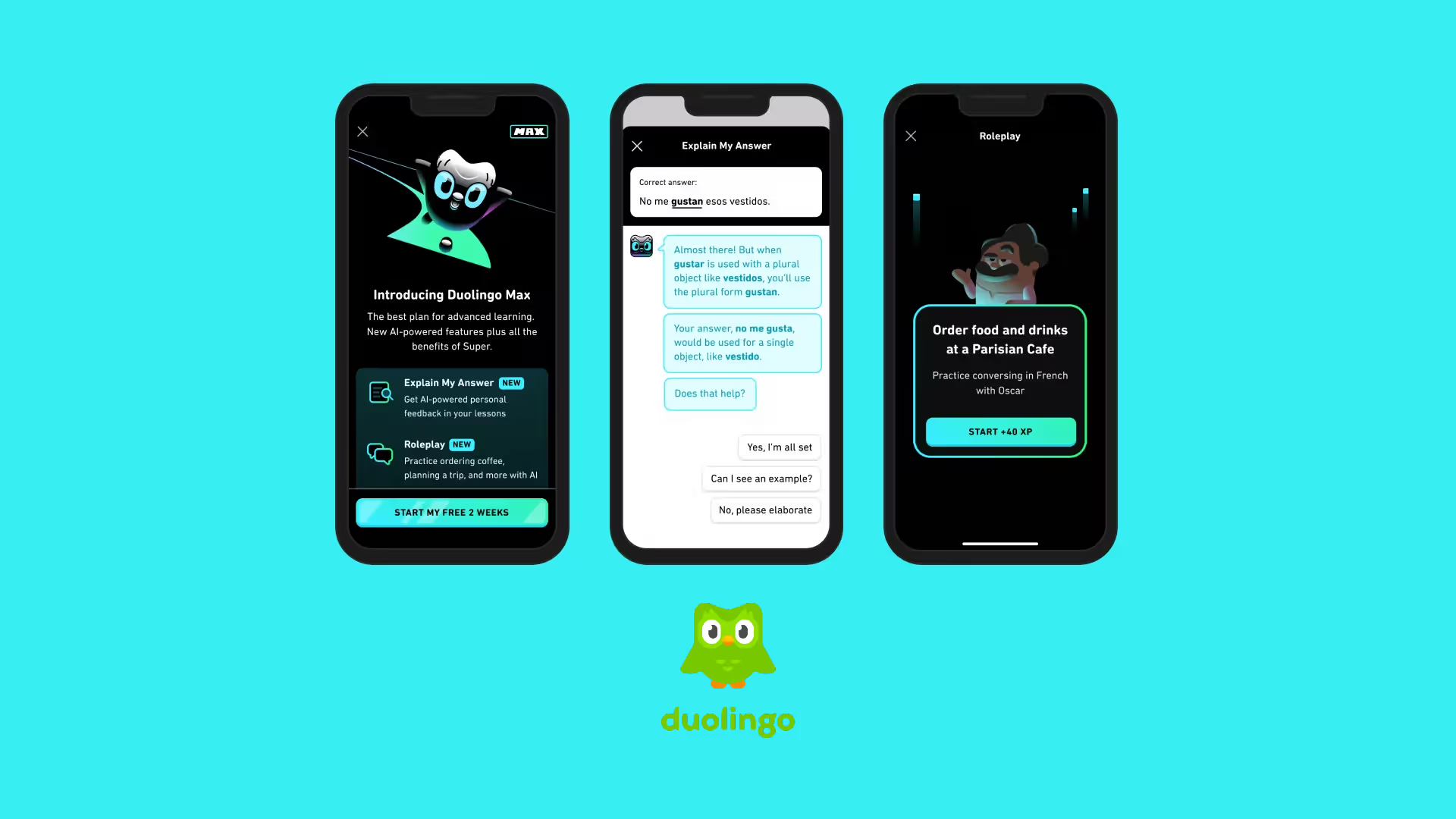May 21, 2025 | EdTech News
In a groundbreaking step for digital education, Duolingo has officially launched its AI-powered language tutor, designed to deliver personalized, conversational learning experiences like never before. Leveraging the latest advancements in generative artificial intelligence, this new feature represents a significant evolution in how users around the globe can master new languages.
With over 500 million users globally, Duolingo is already a leading name in online language learning. The introduction of this AI tutor is expected to dramatically enhance the platform’s interactivity, providing learners with a more natural, human-like approach to mastering languages.
What Sets Duolingo’s AI Tutor Apart
Unlike traditional language learning methods that focus primarily on repetition and static lessons, Duolingo’s AI tutor adapts dynamically to each user’s skill level, interests, and progress. Powered by generative AI and natural language processing (NLP), the tutor simulates real-life conversations, corrects pronunciation, offers grammar explanations, and provides context-sensitive feedback.
The AI tutor will initially support popular languages including Spanish, French, German, English, and Japanese, with more languages to follow in the coming months.
Key features include:
- Real-Time Conversational Practice: Learners can engage in back-and-forth dialogues, mimicking real-life scenarios such as ordering food, traveling, or job interviews.
- Instant Feedback and Corrections: The AI analyzes mistakes and offers constructive corrections with explanations tailored to each learner’s proficiency.
- Emotion and Tone Detection: By assessing tone, the AI can adjust its responses for clarity, politeness, or enthusiasm—adding a human touch to digital interactions.
- Gamified Learning Enhancements: The AI integrates seamlessly with Duolingo’s gamified structure, helping learners stay motivated while progressing efficiently.
Duolingo’s Vision for the Future of Learning
Duolingo CEO Luis von Ahn emphasized the company’s commitment to breaking barriers in education with the help of artificial intelligence. He stated:
“Our AI tutor is more than just a chatbot—it’s a language coach that can guide, assess, and motivate learners through meaningful conversations. This marks a major step forward in making language education more accessible and effective.”
This launch is part of Duolingo’s broader AI strategy, which includes integrating personalized learning paths, adaptive difficulty levels, and predictive analytics to optimize user retention and performance.
Why AI Matters in Language Education
Incorporating AI into language education helps solve a number of persistent challenges:
- Lack of Speaking Practice: Many learners struggle to find opportunities to speak with native speakers. The AI tutor offers a supportive environment where learners can practice without fear of criticism.
- Motivation and Engagement: Personalized interactions keep users engaged longer, reducing the high dropout rate seen in many online courses.
- Scalability: With AI, Duolingo can offer a tutor-like experience to millions simultaneously—something traditional education models can’t match.
Educators and linguists have praised the move, noting that AI can help bridge the gap between passive and active learning.
Availability and Access
The AI tutor is being rolled out initially for Duolingo Max subscribers, the platform’s premium tier. It will be available on both iOS and Android devices, with plans for broader availability based on user feedback.
Users interested in testing the feature can access a free trial during the promotional launch period. Duolingo also hinted at possible integration of this AI technology into its classroom tools, expanding its use in school-based language programs.
What This Means for EdTech
Duolingo’s move underscores a larger trend in EdTech, where artificial intelligence is becoming central to personalized, efficient, and scalable learning solutions. Competitors in the space, such as Babbel and Rosetta Stone, are also experimenting with AI, but Duolingo’s seamless gamification and intuitive design may give it a critical edge.
Industry analysts predict that AI-driven language tutors could become the norm in digital learning platforms within the next five years, transforming how people acquire new languages worldwide.
Conclusion
Duolingo’s AI-powered language tutor is a milestone in educational technology, combining advanced AI with user-friendly design to transform language learning into a more engaging, effective, and personalized journey. As digital learning continues to evolve, Duolingo is clearly leading the charge in reshaping how the world learns to communicate.




